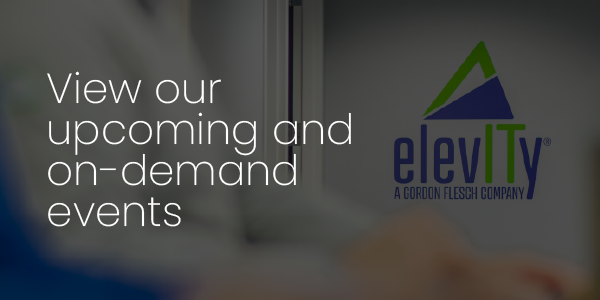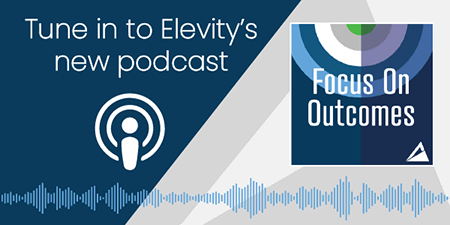Suspected ties between the Kremlin and Kaspersky Lab, a Moscow-based cybersecurity company, made news when the administration’s cybersecurity coordinator, Rob Joyce, expressed concerns. The company’s anti-virus software is supposed to protect its 400 million users worldwide from the threat of malicious ransomware and viruses. However, the U.S. government contends that it may actually be opening a door for Russian intelligence to access valuable information.
In addition to the specific anti-virus software you use, there are many signs that may indicate your data isn’t secure, including outdated systems, third-party services, employee errors and more. Is your company at risk?
If you’re not sure, it’s imperative that you take steps to protect your data, as statistics clearly demonstrate that a security breach could be the beginning of the end for your business. Take these proactive steps to help protect your data and your livelihood.
1. Enlist the Help of a vCIO
You’re likely familiar with the role of a chief information officer (CIO). This full-time executive position is responsible for a company’s IT strategy, including its computer systems, networks and data security. Many smaller and medium-sized businesses, however, cannot afford the hefty salaries that often accompany such a position on their payrolls.
An alternative is enlisting the services of a vCIO — a virtual chief information officer. This is a dedicated person who serves the same function as a CIO at a fraction of the cost and is employed by a Managed IT provider. The vCIO serves as a strategic consultant and helps develop a technology roadmap to mitigate the risk of a security breach, recommends technology solutions, equips employees with tools, training and resources, helps develop a disaster recovery plan, and builds a personalized one-on-one relationship with clients through regular meetings and needs assessments.
Not all Managed IT providers offer such services, and some that do are less than thorough, so be sure to fully understand how involved, available and attentive a company’s vCIO will be to your company’s specific needs.
2. Use a Remote Backup System
Companies that store their data on in-house servers are often more susceptible to the threat of ransomware. This is not necessarily because their systems aren’t as secure as data stored in the Cloud; in fact, some highly robust onsite servers provide great security. The issue is that, if a successful ransomware attack does occur, there often isn’t a proven backup protocol or system to restore the data. Some legacy systems only perform daily or even weekly backups, leading to extensive losses in the event of a data breach.
Implementing a reliable backup system is essential, and many newer online options provide robust, real-time backups by continually capturing changes to user systems. Data is collected, compressed, encrypted and transferred to a remote server, meaning it can be accessed easily in the event of a data breach. The risk of cybercriminals holding a company’s data hostage is significantly reduced with the implementation of online Cloud backup solutions.
3. Take Preventative Measures
Having a reliable backup system is essential, but it should only serve as a safety net. A far better approach is to have systems and processes in place to prevent data loss in the first place. Training and equipping employees with best practices is the single greatest measure companies can take to protect their data. In addition, companies must ensure that any security patches and updates are routinely installed to address vulnerabilities. When you work with a Managed IT provider, these updates can be performed automatically and remotely during off hours, minimizing any disruption.
4. Call in the Experts
If your company doesn’t have a dedicated IT professional who’s able to commit the time and resources necessary to prevent a cyberattack, you can cost-effectively secure the help of experts from a Managed IT provider. A qualified provider can assess your needs and customize a solution to minimize your risk, and can offer a 24/7 Help Desk to immediately answer any questions or remotely access systems.
At Gordon Flesch Company, keeping your data secure is one of our top priorities, and we can customize a budget-friendly solution that works with your unique business model and aligns with your technology goals. Reach out to us today to explore just how feasible a Managed IT solution can be for your organization.









%20cropped.webp)




